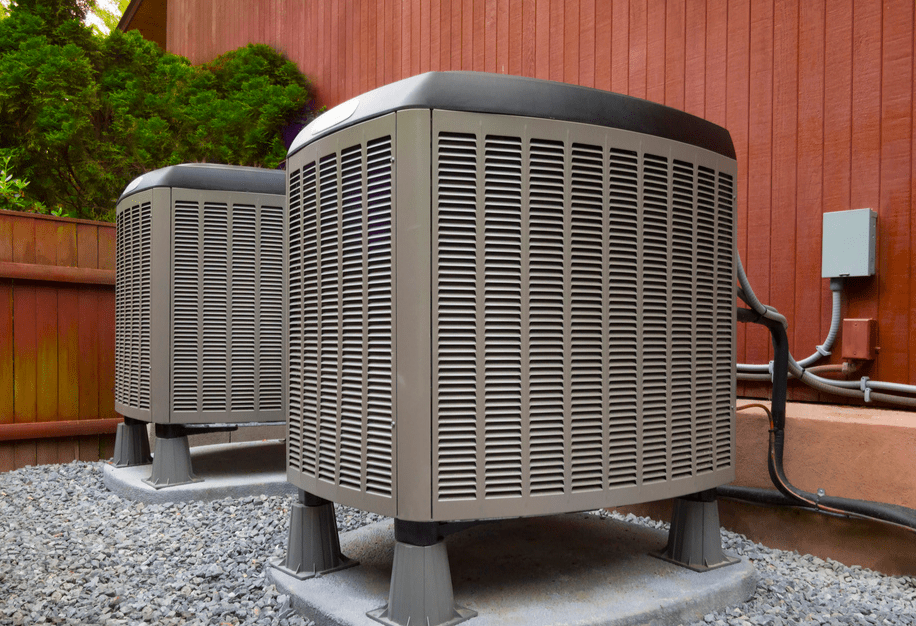Your air conditioning system is essential for maintaining a comfortable indoor environment, especially during the hot and humid summer months. During these times, encountering issues with your AC unit can be frustrating and disruptive. In this comprehensive guide, we’ll explore the common reasons why your AC may not be working and provide step-by-step solutions to help you troubleshoot and resolve those problems. Whether it’s a minor issue or a more serious malfunction, Oria Heating and Cooling is here to help you stay cool and comfortable all year round.
Common Reasons for AC Malfunctions
- Thermostat Problems: If your AC is not turning on or is not cooling your home properly, the thermostat may be the culprit. Check the thermostat settings to ensure it’s set to “cool” mode and the temperature is set lower than the current room temperature. If the thermostat is unresponsive or malfunctioning, it may need to be replaced.
- Dirty Air Filters: A dirty or clogged air filter can restrict airflow and reduce the efficiency of your AC system. Check the air filter and replace it if it’s dirty or clogged with dust, dirt, or debris. Regularly replacing your air filter every 1-3 months can help prevent issues with airflow and maintain optimal performance.
- Refrigerant Leaks: Low refrigerant levels can cause your AC to blow warm air or fail to cool your home adequately. Signs of a refrigerant leak include hissing or bubbling noises coming from the AC unit, ice buildup on the refrigerant lines, or reduced cooling performance. If you suspect a refrigerant leak, it’s essential to contact a professional HVAC technician to locate and repair the leak and recharge the refrigerant.
- Frozen Evaporator Coils: Frozen evaporator coils can result from restricted airflow, low refrigerant levels, or dirty coils. If you notice ice buildup on the evaporator coils or reduced airflow from the vents, turn off the AC system and allow the coils to thaw completely before restarting it. Addressing the root cause of the issue, such as cleaning the coils or repairing refrigerant leaks, can prevent future occurrences of frozen coils.
- Electrical Issues: Electrical problems, such as faulty wiring, tripped circuit breakers, or blown fuses, can cause your AC to stop working or fail to turn on. Check the electrical panel for tripped breakers or blown fuses and reset them if necessary. If the issue persists, it’s best to leave electrical repairs to a licensed electrician to ensure safety and prevent further damage to your AC system.
- Blocked Condensate Drain Line: The condensate drain line removes excess moisture from the AC system, but it can become clogged with algae, mold, or debris over time. A clogged condensate drain line can cause water damage, mold growth, and operational issues with your AC. Inspect the drain line for blockages and use a wet/dry vacuum or pipe cleaner to remove any obstructions.
Steps to Troubleshoot Your AC
- Check the Thermostat: Ensure the thermostat is set to “cool” mode and the temperature is set lower than the current room temperature. Replace the batteries if the thermostat is battery-operated and check for any error codes or malfunctions.
- Inspect the Air Filter: Remove the air filter from the AC unit and inspect it for dirt, dust, or debris. Replace the air filter if it’s dirty or clogged, and make a note to check and replace the filter regularly.
- Clean the Outdoor Unit: Inspect the outdoor condenser unit for debris, such as leaves, grass clippings, or dirt, and clean the fins with a soft brush or vacuum to improve airflow.
- Check the Circuit Breaker: Locate the circuit breaker for your AC unit in the electrical panel and check if it’s tripped. If the breaker is tripped, reset it and monitor the AC unit for any signs of operation.
- Inspect the Condensate Drain Line: Locate the condensate drain line near the indoor AC unit and check for any signs of blockages or clogs. Use a wet/dry vacuum or pipe cleaner to remove any obstructions and ensure proper drainage.
- Call a Professional Technician: If you’ve tried the troubleshooting steps above and your AC is still not working, it’s time to call a professional HVAC technician for expert diagnosis and repair. Attempting DIY repairs or diagnosis beyond basic troubleshooting can be dangerous and may void your AC warranty. Call Oria Heating and Cooling to take it from here.
Conclusion
Dealing with a malfunctioning AC can be stressful, especially during the peak of summer heat. However, by following the troubleshooting steps outlined in this guide, you can identify and resolve common AC issues and restore comfort to your home. If you’re unable to resolve the problem on your own or require professional AC repair services, don’t hesitate to contact Oria Heating and Cooling for prompt and reliable assistance. With our expertise and commitment to customer satisfaction, we’ll have your AC up and running smoothly in no time.

